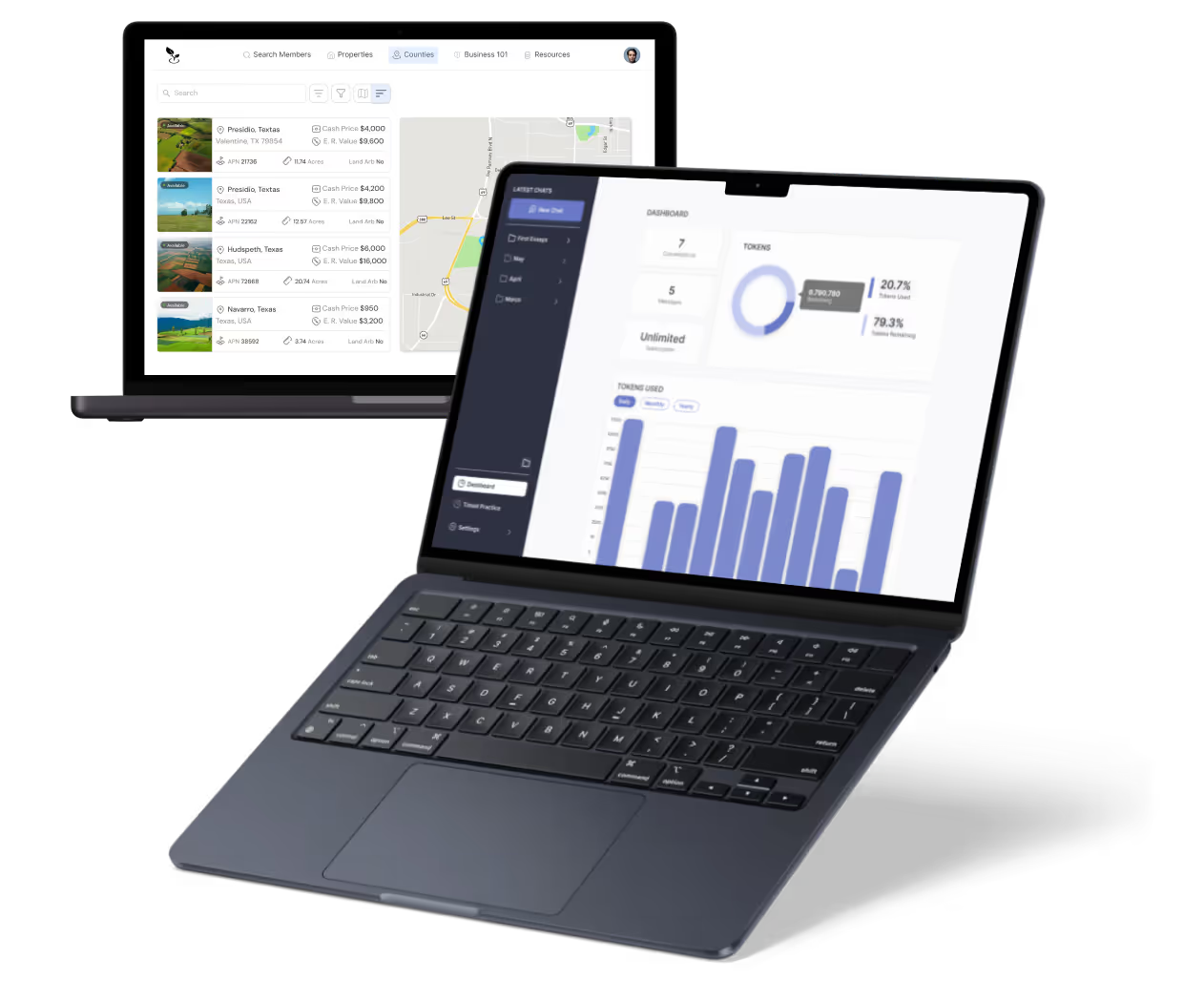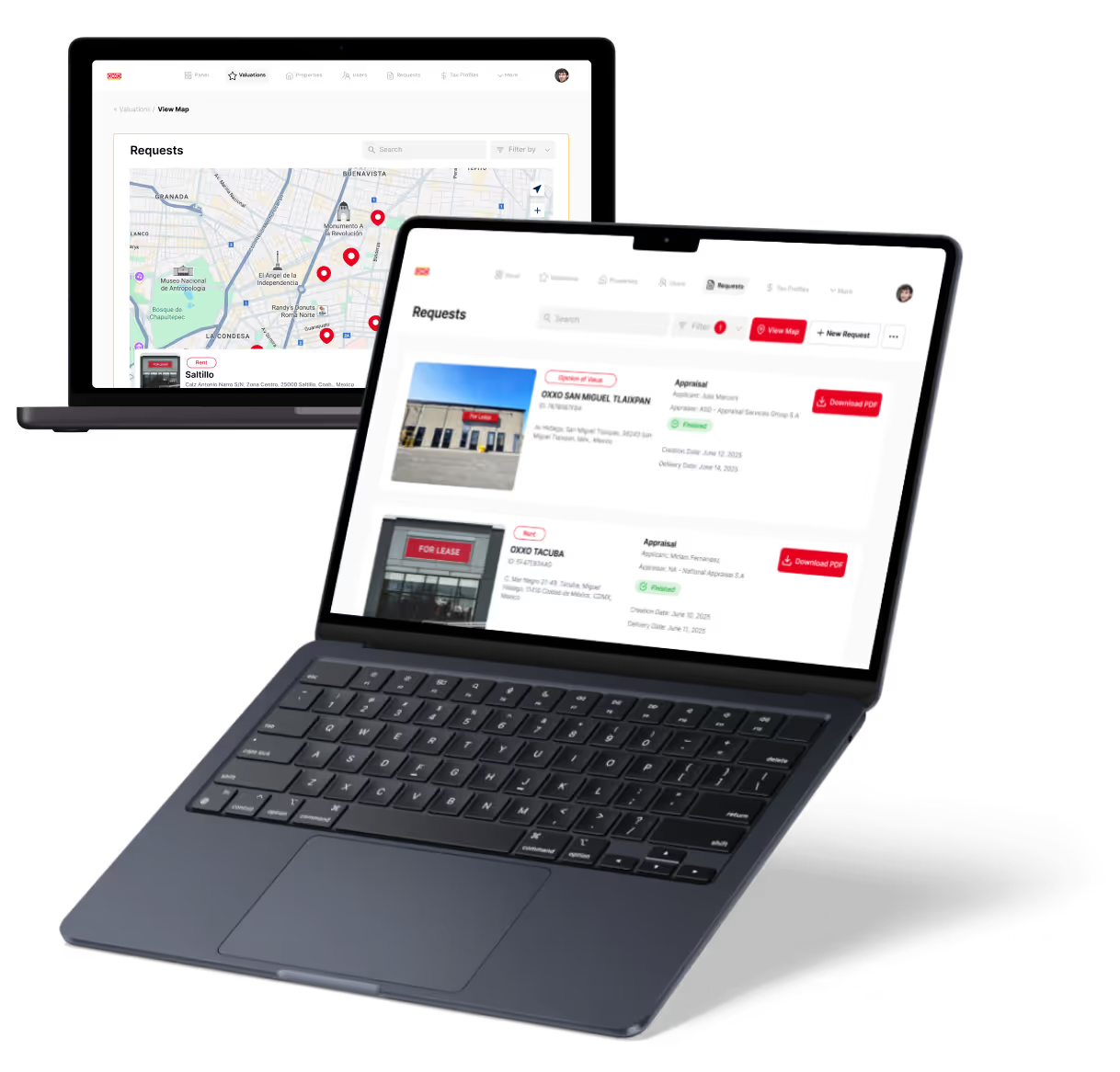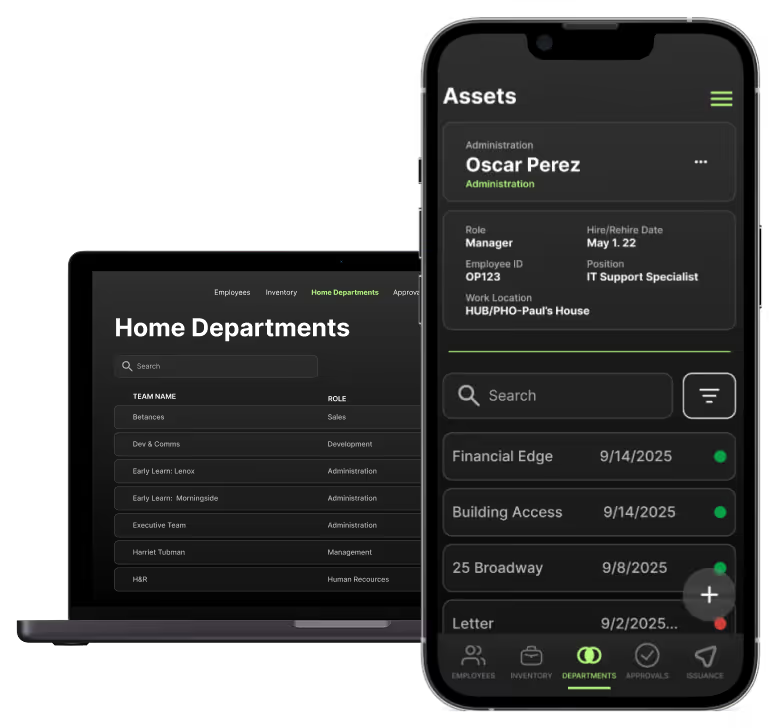Are Bubble Apps Secure? (Risks & Best Practices)
19 min
read
Learn how secure Bubble apps really are, the key risks to watch for, and best practices to protect data, users, and production apps at scale.

Security is a core concern when you build real products with no-code tools. With Bubble, teams often ask whether their data is safe, who controls access, and how much responsibility sits with the platform versus the builder. These questions matter because Bubble apps handle user accounts, payments, and sensitive business data.
This guide helps you understand how Bubble handles security, where risks usually come from, and how to decide if Bubble fits your security requirements.
How Bubble Handles Security at the Platform Level
Bubble takes care of many security responsibilities at the infrastructure level. This removes a large burden from product teams, but it is still important to understand exactly what the platform covers by default.
- Infrastructure and hosting security
Bubble manages servers, hosting, and core infrastructure security. This includes secure data centers, controlled access to systems, and ongoing platform-level monitoring. - Data encryption in transit and at rest
Data is encrypted when it moves between users and servers, and it is also encrypted while stored. This helps protect sensitive information from interception or unauthorized access. - Account security and authentication features
Bubble provides built-in user authentication, password protection, and session handling. These features form the base layer for secure user access across applications. - DDoS protection and network safeguards
Bubble includes network-level protections to reduce the risk of traffic-based attacks. These safeguards help keep apps available during abnormal or malicious traffic spikes.
Platform-level security gives Bubble apps a strong foundation. However, secure applications still depend on how data access and logic are designed inside the app.
Read more | Bubble alternatives
Compliance Standards Supported by Bubble
Compliance is often a deciding factor when teams choose a platform. Bubble supports several important standards at the platform level, but compliance is shared between Bubble and how your app is built.
- SOC 2 Type II compliance
Bubble is SOC 2 Type II compliant. This means its infrastructure, security controls, and operational processes are audited and meet strict industry standards for data protection and reliability. - GDPR and data protection support
Bubble supports GDPR requirements such as data access control, data deletion, and data handling transparency. These features help teams meet GDPR obligations, but correct implementation inside the app is still required. - Enterprise security options
Bubble offers enterprise-level options like advanced access controls and security features for larger teams. These are useful for organizations with stricter internal security requirements. - What compliance Bubble supports vs what it does not guarantee
Bubble provides a compliant platform foundation. It does not automatically make your app compliant. App-level logic, data access rules, and operational processes remain your responsibility.
Bubble supports compliance, but compliance is not automatic. Teams must design and manage their apps correctly to meet regulatory requirements.
Read more | Bubble.io capabilities and limitations
Bubble’s Shared Responsibility Security Model
Security in Bubble is based on a shared responsibility model. The platform secures the foundation, but the safety of your application depends heavily on how it is configured and maintained.
- What Bubble secures for you
Bubble secures the underlying infrastructure, hosting environment, network protection, and core authentication systems. This includes server security, encryption, and platform-level safeguards against common threats. - What app owners and developers are responsible for
App owners control privacy rules, access permissions, workflow logic, and data exposure. Poorly designed rules or logic can unintentionally expose data, even if the platform itself is secure. - Why most security issues come from configuration, not the platform
Most security problems happen due to misconfigured privacy rules, open APIs, or unchecked workflows. These are design issues, not platform failures, and can be avoided with careful planning.
Bubble provides a secure base, but real security comes from correct app design and disciplined configuration choices.
Data Privacy and Access Control in Bubble
Data privacy in Bubble is powerful but easy to get wrong if not planned carefully. Most security risks come from how access rules are defined, not from the platform itself.
- Privacy rules and data visibility
Bubble uses privacy rules to control who can see or change data. These rules decide what fields are visible and under which conditions data is accessible. - Role-based access and permissions
You can restrict access based on user roles such as admin, staff, or customer. This ensures users only see data relevant to their role and prevents accidental exposure. - Protecting sensitive user data
Sensitive fields like emails, payments, or internal notes should always be restricted by strict privacy rules. Backend workflows should be used carefully to avoid bypassing access controls. - Common privacy rule mistakes to avoid
Common errors include overly broad rules, missing conditions, or testing only as an admin user. These mistakes can expose data unintentionally.
Strong privacy rules are essential. When designed correctly, Bubble allows fine-grained control over data access across your application.
Read more | Bubble vs FlutterFlow
Authentication and User Account Security in Bubble
User accounts are often the first target in application attacks. Bubble provides solid authentication tools, but account security still depends on how access and roles are configured inside the app.
- Login and password handling
Bubble includes built-in login, signup, password reset, and session handling. Passwords are managed securely by the platform, reducing the risk of improper credential storage. - Two-factor authentication and SSO
Bubble supports advanced authentication options like two-factor authentication and single sign-on through integrations. These add an extra layer of protection, especially for admin or enterprise users. - Securing admin and internal user access
Admin panels and internal tools should be protected with strict role-based access rules. Only authorized users should be able to view or modify sensitive system data. - Preventing unauthorized account access
Security improves when login attempts, session duration, and access rules are carefully managed. Limiting exposed endpoints and protecting backend workflows also reduces risk.
Strong authentication is not just about login screens. It requires consistent access control across every part of the application.
Read more | Bubble scalability
API, Workflow, and Backend Security in Bubble
Backend logic is where most serious security issues can arise if rules are not clearly defined. Bubble provides strong tools for this, but they must be used carefully to prevent unintended access. Read this guide to discover suitable backend options for your Bubble app.
- Securing API endpoints
Bubble allows APIs to be exposed or private. Public endpoints should always be protected with authentication, tokens, or strict conditions to prevent misuse. - Restricting backend workflows
Backend workflows should run only when specific conditions are met. Clear checks on user roles, data ownership, and request source help prevent unauthorized execution. - Preventing unauthorized workflow execution
Many security issues come from workflows that can be triggered without proper validation. Every workflow should verify who triggered it and why before running actions. - Managing rate limits and abuse risks
Unrestricted workflows can be abused through repeated calls. Limiting execution frequency and validating inputs reduces abuse and unexpected workload spikes.
Secure backend design is essential. When APIs and workflows are tightly controlled, Bubble apps remain stable, secure, and predictable.
Read more | Bubble pros and cons
File Storage and Upload Security in Bubble
File uploads are common in Bubble apps, but they can also introduce risk if access rules are loose. Secure file handling depends on how uploads, storage, and permissions are configured.
- Handling file uploads safely
Bubble stores uploaded files securely, but apps must control who can upload and when. Validating upload actions and limiting file types helps reduce misuse. - Restricting access to private files
Files linked to private data should follow the same privacy rules as the data itself. Access should be limited based on user role, ownership, or specific conditions. - Preventing malicious or unintended file exposure
Common mistakes include exposing file URLs publicly or attaching files to unrestricted data fields. Proper privacy rules and careful testing prevent accidental file leaks.
File security is not automatic. When upload access and file visibility are tightly controlled, Bubble apps can safely handle documents, images, and user-generated content.
Read more | Types of apps you can build with Bubble.io
Common Bubble Security Risks and Vulnerabilities
Most security issues in Bubble apps do not come from the platform itself. They usually happen because of configuration mistakes made during development. Knowing these risks helps teams avoid common and costly errors.
- Misconfigured privacy rules
Bubble privacy rules control who can see or edit data. Overly broad rules or missing conditions can expose sensitive records to unauthorized users. - Exposed pages and workflows
Pages or workflows that are not properly restricted can be accessed directly through URLs. This can allow users to view or trigger actions they should not have access to. - Insecure API connections
APIs without authentication or validation can be abused. Hardcoded keys, open endpoints, or weak conditions increase the risk of data leaks or misuse. - Risks from third-party plugins
Plugins add functionality, but they also introduce external code. Poorly maintained or untrusted plugins can create security gaps if not reviewed carefully.
Most Bubble security risks are preventable. Careful configuration, testing, and ongoing review significantly reduce exposure and keep apps secure.
Read more | How to hire Bubble developers
Plugin and Integration Security in Bubble
Plugins and integrations extend what Bubble can do, but they also add external dependencies. Security depends on choosing the right tools and using them with clear limits and oversight.
- Evaluating plugin trust and maintenance
Bubble plugins should be reviewed for update history, documentation quality, and community usage. Actively maintained plugins with clear support signals are safer than abandoned ones. - Risks of outdated or poorly built plugins
Old or poorly designed plugins may use insecure methods, expose data, or break with platform updates. These risks increase over time if plugins are not reviewed regularly. - Best practices for using external services securely
Use authentication for every integration, store API keys securely, and limit permissions to only what is needed. Monitor usage and remove unused integrations to reduce exposure.
Plugins are powerful, but they should be treated like code dependencies. Careful selection and ongoing review keep integrations useful without introducing unnecessary risk.
Read more | How to choose a Bubble agency
Monitoring, Logging, and Ongoing Security Maintenance
Security does not stop at launch. As Bubble apps grow and change, ongoing monitoring and regular reviews are essential to keep data, users, and workflows protected.
- Using Bubble’s security dashboard
Bubble provides tools to monitor app activity and usage. These help teams spot unusual behavior, unexpected workload spikes, or access patterns that may signal risk. - Activity logs and audit trails
Logs make it easier to trace actions taken by users and workflows. Reviewing logs helps identify who accessed data, triggered workflows, or changed critical records during incidents or investigations. - Regular security reviews and audits
Apps should be reviewed whenever features, roles, or integrations change. Regular audits catch misconfigured privacy rules, exposed pages, or outdated plugins before they become real issues. - Keeping apps secure as they evolve
As products scale, security needs change. New users, workflows, and integrations require updated access rules and testing to avoid gaps created during iteration.
Strong security is ongoing work. Teams that monitor, review, and adjust regularly keep Bubble apps safe as they grow and evolve.
Read more | Bubble MVP app development
Security in Regulated or Sensitive Use Cases
Apps that handle sensitive data need more than basic protection. Bubble can support these use cases, but only when security is treated as a core design requirement, not an afterthought.
- Handling healthcare, financial, or personal data
Bubble can store and process sensitive data, but access must be tightly controlled. Strict privacy rules, role-based permissions, and limited data exposure are essential to reduce risk. - What Bubble can support with careful setup
Bubble supports encryption, access control, auditability, and compliance-friendly workflows. With disciplined configuration, it can be used for internal healthcare tools, financial dashboards, and regulated business operations. - When additional safeguards are required
Extra safeguards like external identity providers, encrypted integrations, restricted APIs, and manual approval workflows may be needed to meet regulatory expectations or internal security standards. - Situations where Bubble may not be suitable
Bubble may not fit products that require certified environments, strict data residency control, or low-level security customization mandated by regulation.
Bubble can work in sensitive contexts, but only when security planning is deliberate, documented, and continuously reviewed.
Read more | Top Bubble agencies
Best Practices for Building Secure Bubble Apps
Strong security in Bubble apps comes from clear decisions made early and reinforced over time. Most issues are preventable when security is treated as part of product design, not a final checklist.
- Planning security from day one
Bubble apps should be designed with security in mind from the start. Define user roles, data ownership, and access boundaries before building features to avoid risky retrofits later. - Testing privacy rules and access paths
Privacy rules should be tested using different user roles, not just admin accounts. This helps confirm that users can only see and change what they are supposed to. - Limiting attack surface
Only expose pages, APIs, and workflows that are necessary. Removing unused features, endpoints, and plugins reduces the number of places where security issues can appear. - Keeping security simple and explicit
Clear rules are safer than complex logic. Simple, explicit access conditions are easier to review, test, and maintain as the app evolves.
Secure Bubble apps are not built by accident. Teams that plan carefully, test regularly, and keep rules clear reduce risk and build more trustworthy products.
Read more | Bubble vs FlutterFlow for AI App Development
How LowCode Agency Builds Secure Bubble Apps
Security is not something we add at the end. We design Bubble apps with security in mind from the first planning session, because fixing security later is always slower, riskier, and more expensive.
- Security-first architecture planning
At LowCode Agency, we plan user roles, data ownership, access paths, and backend logic before building screens. This prevents common exposure issues and keeps security aligned with how the product actually works. - Privacy rule audits and reviews
We carefully design and review privacy rules for every data type. This includes testing access as different user roles, not just admins, to make sure sensitive data stays protected in real usage. - Performance and security optimization
Security and performance are linked. We optimize workflows, backend logic, and APIs to reduce unnecessary exposure, prevent abuse, and keep systems predictable as usage grows. - Ongoing monitoring and iteration
We have built and scaled hundreds of Bubble apps, and most security issues appear during growth, not launch. We support ongoing reviews, updates, and improvements as products evolve.
If you are building a Bubble app that handles real users and real data, security decisions matter early. Reach out and let’s discuss how to design your Bubble product to be secure, scalable, and ready for real-world use.
Conclusion
Bubble offers strong platform-level security, including secure hosting, encryption, and compliance support like SOC 2 and GDPR readiness. Most risks come from misconfigured privacy rules, exposed workflows, or unsecured integrations rather than the platform itself.
Bubble meets security needs well when apps are designed with clear access control, careful workflow checks, and regular reviews.
If your product fits these practices and does not require deep infrastructure control, Bubble is a solid and secure choice.
Created on
September 2, 2023
. Last updated on
January 29, 2026
.

FAQs
Is Bubble secure enough for production apps?
Who is responsible for security in Bubble apps?
Can Bubble apps meet GDPR or SOC 2 requirements?
What are the most common Bubble security mistakes?
How do you secure APIs and workflows in Bubble?
When should you avoid using Bubble for security reasons?













.avif)
.avif)


